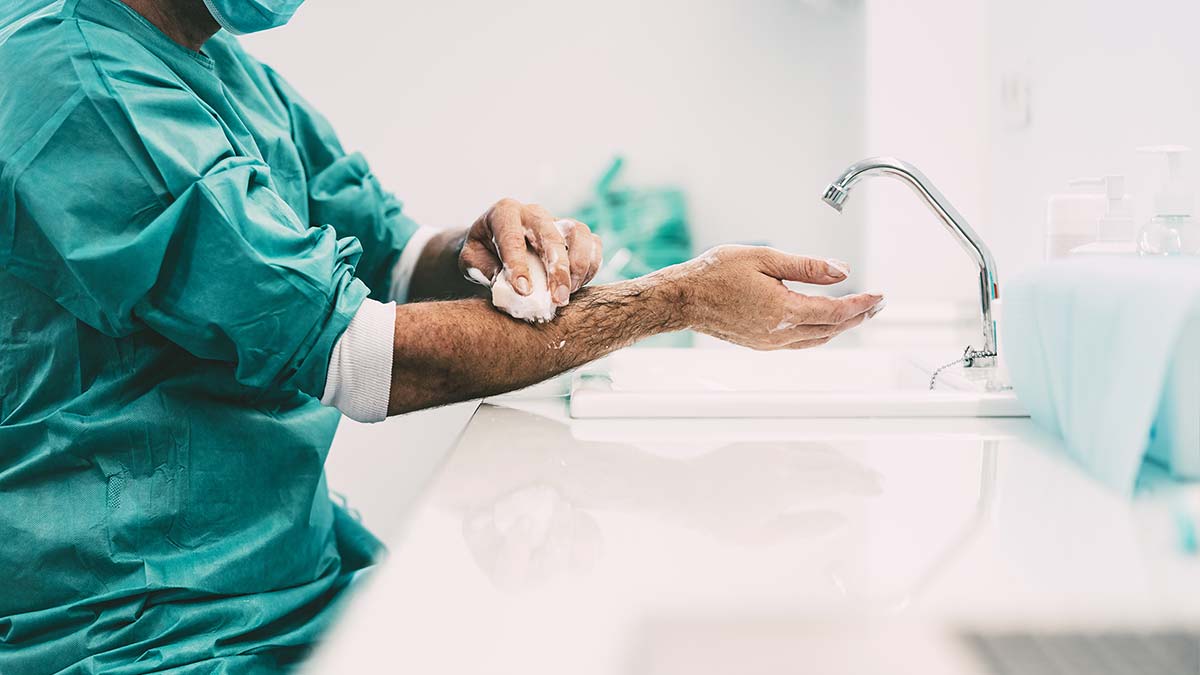
According to the United States Census Bureau in a study based on the Bureau’s 2010 Survey of Income and Program Participation 3.6 million people use wheelchairs.
While there are no statistics kept on how many people using wheelchairs work in the healthcare industry, some sources estimate it to be between one and two percent. The odds are fairly good that now or in the future, a few of those 72,000 people may be working in your healthcare facility or a facility on which you are consulting.
Now let’s look at another relevant statistic. According to the CDC, there are an estimated 1.7 million hospital-acquired infections each year, which result in approximately 90,000 deaths. A study in Emerging Infectious Diseases found that hospital-acquired infections are the sixth leading cause of death nationally, costing the healthcare industry $6 billion annually.
The CDC and other organizations are pushing the importance of healthcare workers to wash their hands before and after every patient interaction as a primary way to combat infections. It seems like such a simple solution, but is it so simple for employees in a wheelchair? What about family members in wheelchairs who are visiting friends and family in the hospital? Are we making it easy for them to comply?
These days, everywhere you turn in a healthcare facility there is a sink. But these sinks are typically built and installed to accommodate individuals who move around without the assistance of a wheelchair. Your typical sink is, at best, awkward to maneuver around if you are in a wheelchair and, at worst, impossible to use. Today there are alternative scrub sink manufacturers offering ADA-compliant options.
Why You Should Include ADA-Compliant Scrub Sinks in Your Design
On December 30th, 2007, Dr. Eugene Alford, a renowned plastic and reconstructive surgeon was injured when a tree on his property fell on him. That accident left him paralyzed from the waist down. After extensive physical therapy, Dr. Alford was able to return to surgery. The hospital where Dr. Alford practiced at the time had a Whitehall ADA-compliant scrub sink installed to accommodate his needs.
While the ADA does not require all healthcare facilities to install ADA-compliant scrub sinks, it is a good practice to do so for several reasons.
- An employee might make a request to provide reasonable accommodation in order to do their job effectively.
- Competition is stiff for the best and brightest healthcare workers. Failing to provide this type of accommodation may make a potential employee choose a facility they feel values them over one who does not.
- Providing employees with disabilities the appropriate tools to do their job is simply a case of fairness and respect.
- Access to an ADA-compliant scrub sink will increase compliance with hand washing procedures for both employees and patients’ family members and friends who are visiting.
ADA-compliant scrub sinks are not just an accommodation needed in the surgical suite; they should be used throughout the building so that all employees and visitors can help in efforts to cut down on the spread of infection.
Learn more about our ADA-compliant scrub sinks and other Whitehall products.
